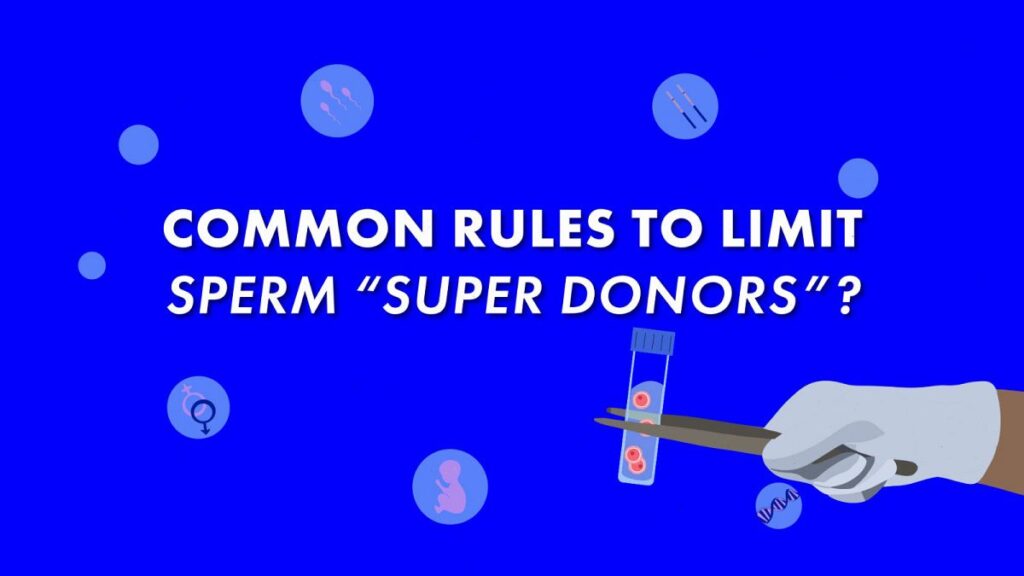Published on
Society is increasingly opting for children later in life, and more individuals choosing to become parents alone or with same sex partners. Combined with greater access to advances in assisted reproductive technology, this has led to a rise in Europe in births conceived through donor contributions.
Regulation of sperm and egg donation falls entirely under the jurisdiction of each individual country. And the legislation varies from one to another.
The maximum number of children that can be conceived from a single donor varies from one in Cyprus to 15 in Germany. And some member states prefer to limit the number of families that can use the same donor. Sweden and Belgium cap it at six families, while Denmark allows up to 12.
For their part, commercial sperm banks set their own limits, which has resulted in some donors fathering up to 75 children.
A recent high-profile case involved a Danish donor who unknowingly carried a rare genetic mutation that increases the risk of cancer and who helped conceive at least 67 children in Europe, 10 of whom were diagnosed with cancer.
These “super donors” increase the risk of unintentional incest and the spread of genetic abnormalities. Additionally, there’s the issue of donor anonymity.
“Sperm donation is anonymous in Italy, but not in the Netherlands. And in some countries, like Austria, it is semi-anonymous, which means that sperm donation is only anonymous between the donor and the recipients,” said Amandine Hess, who has covered this topic for Euronews. “Due to DNA testing and social media, donor anonymity can no longer be guaranteed 100%, so it’s increasingly common for children to connect with their half-siblings or donor, which can be challenging for them and also for their families,” she added.
A European Donor Registry
Because of these ethical concerns, eight EU health ministers—Belgium, Finland, France, Hungary, Netherlands, Romania, Spain, Sweden—joined forces to propose the establishment of common regulations on sperm donation in Europe.
The proposal includes the possibility of creating a European donor registry, as regulatory differences lead patients and donors to travel to countries with more lenient rules. Spain, for example, carries out 50% of egg donation treatments and even receives patients from Latin America.
“I believe it is more than necessary to create a European registry,” said MEP Elena Nevado del Campo, and vice-chair of the public health committee. “Many national laws already provide for the creation of such registries, but in reality, many have not been implemented, and more needs to be done for ethical reasons. International registries should be established, since these donations also cross borders beyond the European Union itself,” she told Euronews.
According to the Oviedo Convention, an international treaty from the Council of Europe that sets ethical principles for biomedicine, the human body and its parts must not give rise to financial gain.
But commercial cryopreservation banks make profits through the handling, freezing, and storage of sperm and eggs, as well as through the screening of potential donors.
This cross-border business will likely continue to grow, along with the ethical and public health issues it raises.
Watch the video here!
Journalist: Mared Gwyn Jones
Content production: Pilar Montero López
Video production: Zacharia Vigneron
Graphism: Loredana Dumitru
Editorial coordination: Ana Lázaro Bosch and Jeremy Fleming-Jones
Read the full article here
